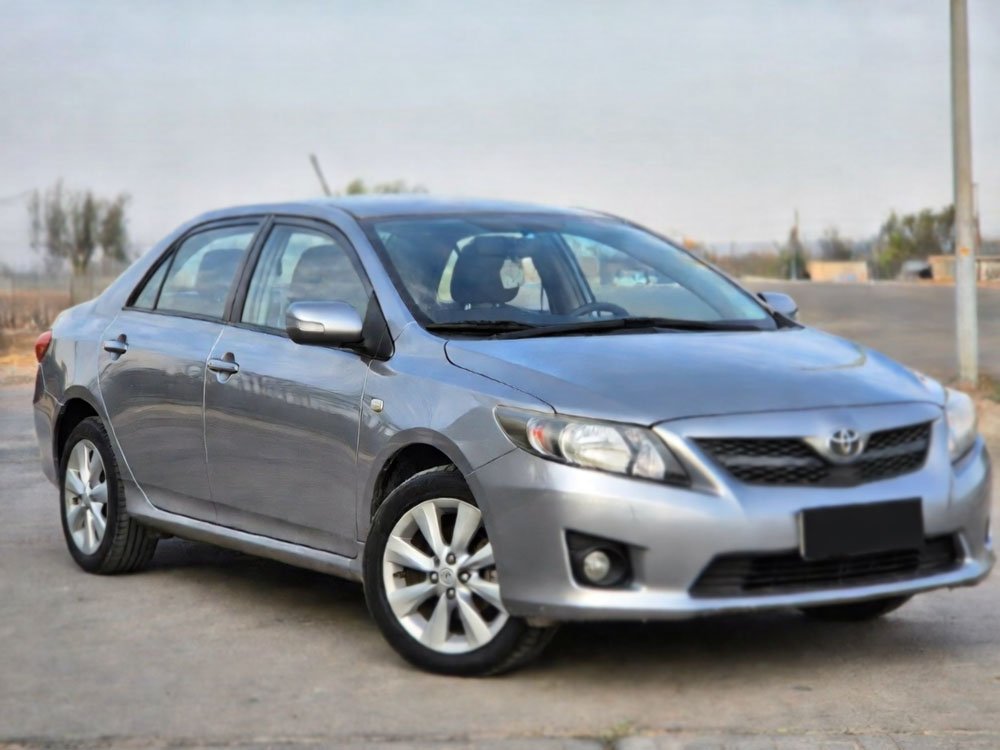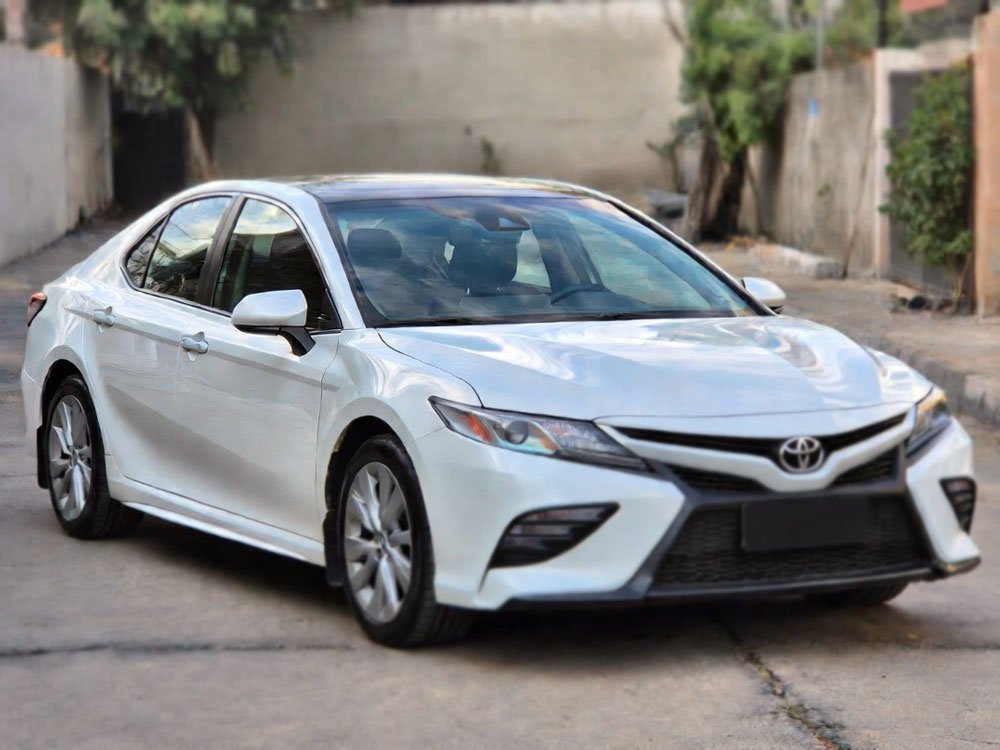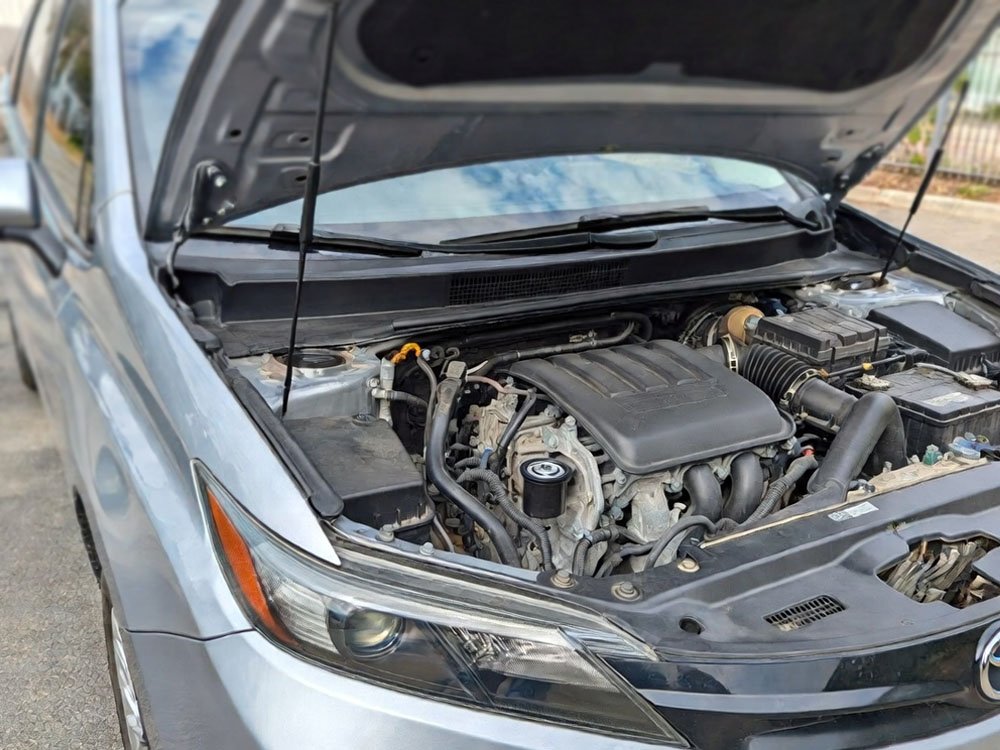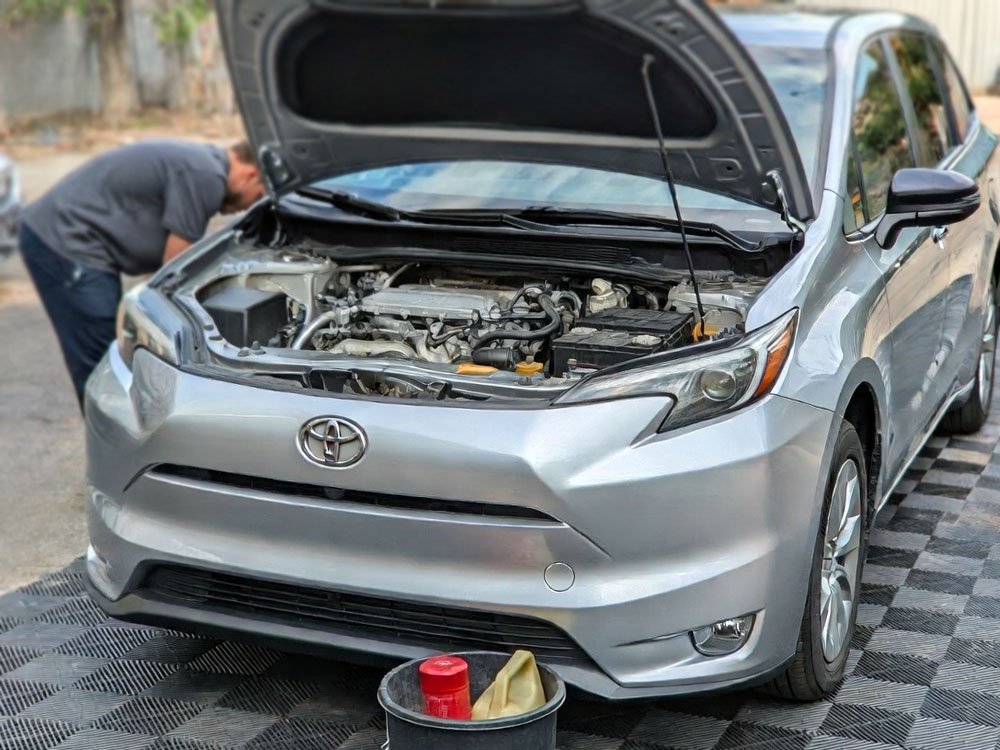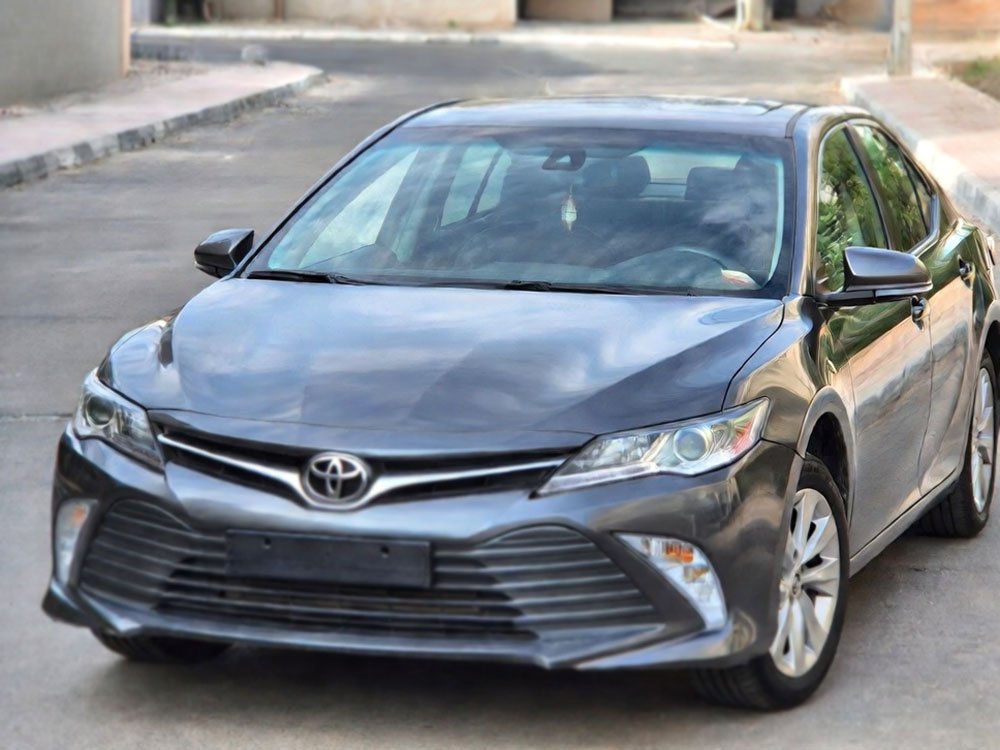As an Amazon Associate, I earn from qualifying purchases at no extra cost to you.
Car Not Starting But Battery is Fine: Here’s What You Can Do
You turn the key, press the start button, and… nothing. Frustrating, right? But, wait – you know your battery is perfectly fine, so what’s going on? There could be a number of reasons why your car won't start, even though the battery isn't the problem. In this post, we’ll break down what to check and how to fix it. Don't worry, I got you covered!
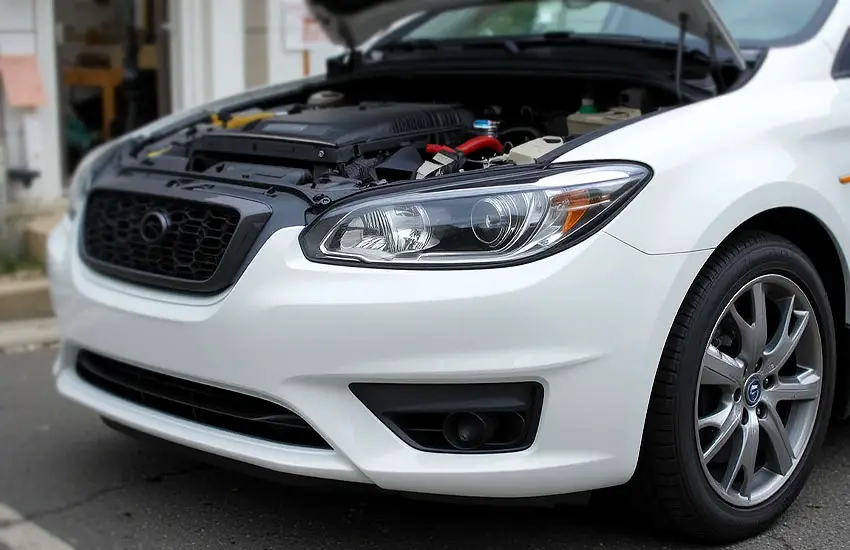
Common Symptoms When Your Car Won’t Start (But the Battery is Fine)
Imagine this: you're sitting in your car, keys in hand, ready to go, but when you hit the start button or turn the key, the car just won't budge. You double-check the battery, and everything seems fine – the lights are on, and there's no warning signal. Still, the engine won't turn over.
Here are some common symptoms you might notice when your car is not starting, but the battery is in good shape:
1. No Engine Turnover (No Clicking Sound)
If there's absolutely no sound when you try to start your car, it could mean that there's no power reaching the starter motor. A working battery should be providing enough juice to at least make some noise, even if it doesn't start the engine. When there’s no clicking or cranking sound at all, it suggests a deeper issue.
2. Clicking Sound, But No Start
This is a common scenario. You turn the key, hear a rapid clicking sound, but the engine doesn't start. This could mean the starter motor is failing, or the solenoid is having trouble sending enough power to the starter. Either way, this sound is your car’s way of telling you it's not getting enough current to get the engine going.
3. Dashboard Lights Are On, But No Engine Response
You may notice that the dashboard lights come on when you attempt to start the car, and you may even hear the radio or air conditioning kick in, but the engine won't start. This can be deceiving because it might make you think the battery is working fine. But your battery might still be too weak to power the engine.
4. Car Cranks But Doesn't Start
You may hear the engine trying to turn over (cranking), but it doesn't fire up. When this happens, the problem could lie elsewhere, like the fuel system, ignition system, or even something as simple as a clogged air filter. The fact that the engine cranks means that the battery is providing some power, but it's not enough to get it running.
5. Battery is Fine, But the Car Just Won't Start
So, what's the deal? The battery seems perfect – it’s not dead, and it has enough juice to power lights and accessories. But the car still won’t start. If you've ruled out the battery, that's when you need to start looking at other possibilities.
Possible Causes for Car Not Starting When Battery is Fine
It's important to note that even if your battery is working perfectly, there are still several reasons why your car might not start. Sometimes, it's a small issue you can easily fix, but other times it could be something bigger. Here's a breakdown of what could be happening:
Faulty Starter Motor
The starter motor is one of the most common culprits behind a car that won’t start. It's responsible for physically turning the engine over when you start the car. If the starter motor fails, your car won't start, no matter how strong the battery is.
A failing starter motor might make a clicking sound when you try to start the car, but sometimes it doesn't make any noise at all. This could indicate that the internal parts of the starter are worn out or damaged.
How to Test a Starter Motor:
- Listen for sounds: When you turn the key, listen carefully. If you hear a clicking sound but no cranking, the starter may be the problem.
- Jump-start the car: Sometimes, you can bypass the starter motor issue temporarily by jump-starting the car. If it starts, it's a good sign that the starter is faulty.
- Check connections: Loose or corroded connections at the starter can also prevent it from working properly.
Bad Alternator
Your alternator is responsible for charging the battery and keeping the electrical system running. If the alternator fails, your car's electrical system might not function properly, and it could prevent the engine from starting – even if the battery is good.
A bad alternator can cause the battery to slowly lose its charge, which is why your car might start one day and then not the next. When you're dealing with a bad alternator, your car could be drawing power from the battery without recharging it.
How to Test an Alternator:
- Use a multimeter: You can use a multimeter to measure the voltage of your battery. If the alternator is working properly, the voltage should be around 13.7 to 14.7 volts when the car is running. If it’s lower, the alternator might need replacing.
- Check for warning lights: Many cars will display a warning light on the dashboard if there's an alternator issue.
Ignition Switch Problems
The ignition switch is the part of your car that sends the signal to start the engine when you turn the key. If it fails, your car won't start – even if everything else is in perfect condition.
Ignition switch problems can be hard to diagnose because they may not show up as easily as other electrical issues. Sometimes, the car will turn over, but the engine won't start. In other cases, you may not hear any noise when you turn the key.
How to Test the Ignition Switch:
- Turn the key to the “on” position: If the car doesn't start, try moving the key a little bit to see if it works.
- Check electrical connections: The ignition switch has connections that send power to the starter motor. If those connections are faulty, the car won't start.
Fuel Delivery Problems
If your car is cranking but won't start, there's a good chance the problem lies with the fuel system. Cars need both fuel and spark to start, so if your car isn't getting enough fuel, it won't fire up. Common issues include a faulty fuel pump, clogged fuel filter, or even a blockage in the fuel line.
How to Diagnose Fuel Problems:
- Listen for the fuel pump: Turn the key to the "on" position without starting the car and listen for the fuel pump. If you don't hear a hum, it could be the pump.
- Check the fuel filter: A clogged fuel filter could prevent the proper flow of fuel to the engine. Replacing the fuel filter might fix the issue.
Clogged Fuel Injectors
Fuel injectors are responsible for spraying fuel into the engine for combustion. Over time, injectors can become clogged with dirt, rust, or other debris, preventing fuel from entering the engine.
If you suspect the injectors are clogged, the engine might not run smoothly, or it could refuse to start altogether.
How to Clean Fuel Injectors:
- Use injector cleaner: You can use a fuel injector cleaner to clean out minor clogs.
- Remove and clean the injectors: For more serious clogs, you might need to remove and clean the injectors or have a professional clean them for you.
Faulty Fuses and Relays
Fuses and relays are responsible for controlling power to various parts of your car's electrical system, including the starter motor and fuel system. If a fuse blows or a relay fails, it can prevent your car from starting.
How to Check Fuses and Relays:
- Locate the fuse box: Check the owner’s manual to find the fuse box location. Inside, you'll find fuses for the starter and fuel system.
- Look for blown fuses: If a fuse looks blackened or burnt, it's probably blown.
- Test relays: You can test relays with a multimeter to check for continuity.
Security System Malfunctions
Modern cars come with advanced security systems that prevent the car from starting unless it recognizes the key or remote. If there's an issue with the key fob, immobilizer, or security system, your car might refuse to start.
Sometimes, the key might need to be reprogrammed, or the security system might need to be reset. If your car's security system is causing the problem, it's worth visiting the dealership to fix the issue.
How to Reset the Security System:
- Turn the key on and off: Some cars can be reset by turning the key to the "on" position and waiting for a few minutes.
- Check the fob battery: If your key fob's battery is dead, the car may not recognize the key. Replacing the battery could fix the issue.
Troubleshooting Steps to Diagnose the Problem
Now that you know what could be causing the problem, let's dive into some practical troubleshooting steps to help you narrow down the issue.
Step 1: Check the Battery Connections
Even if the battery is new or appears to be fine, the issue could be as simple as a loose or corroded connection. Start by checking the battery terminals for any buildup of corrosion, dirt, or loose connections. If the terminals are dirty, clean them using a wire brush and baking soda. If they are loose, tighten them securely.
Step 2: Listen for Noises
When you turn the key, listen carefully for any sounds. If you hear clicking, but the engine doesn't start, the starter motor might be the culprit. If there's no sound, you may have an issue with the ignition switch, solenoid, or wiring.
Step 3: Test the Alternator
To test the alternator, use a multimeter to check the voltage at the battery when the car is running. If the voltage is low (below 13 volts), the alternator may not be charging the battery properly. If this is the case, you'll need to replace the alternator.
Step 4: Inspect the Starter Motor
If you suspect the starter motor is the problem, you can check it by jumping the car using jumper cables. If the engine starts, then the starter is likely the issue. If not, it might be time to have the starter motor replaced.
Step 5: Check Fuses and Relays
Locate the fuse box and look for any fuses related to the ignition system or fuel system. If you find a blown fuse, replace it and see if that solves the problem.
Step 6: Check the Fuel System
Listen for the fuel pump. If you don't hear the usual hum, there might be an issue with the pump. You can test fuel pressure by using a fuel pressure gauge. If there's no pressure, the pump could be faulty.
Step 7: Reset the Security System
If your car has a security system, try resetting it by following the instructions in the manual or by turning the key on and off a few times. If the issue persists, you may need to take the car to the dealership for reprogramming.
When to Seek Professional Help
If you've gone through all the troubleshooting steps and your car still won't start, it may be time to consult a professional mechanic. A trained mechanic has the tools and expertise to diagnose more complex issues like faulty wiring, deep electrical problems, or malfunctioning systems.
Don't feel bad about asking for help – some problems are best left to the experts, especially if you’re dealing with a major component like the starter motor, alternator, or ignition system. A professional will be able to identify and fix the issue, often more quickly than you could on your own.
I hope this guide helps you understand why your car might not be starting even though the battery is fine. From a faulty starter motor to issues with your ignition or fuel system, there are a lot of potential causes. If you try the troubleshooting steps and still have trouble, don’t hesitate to call in a professional.
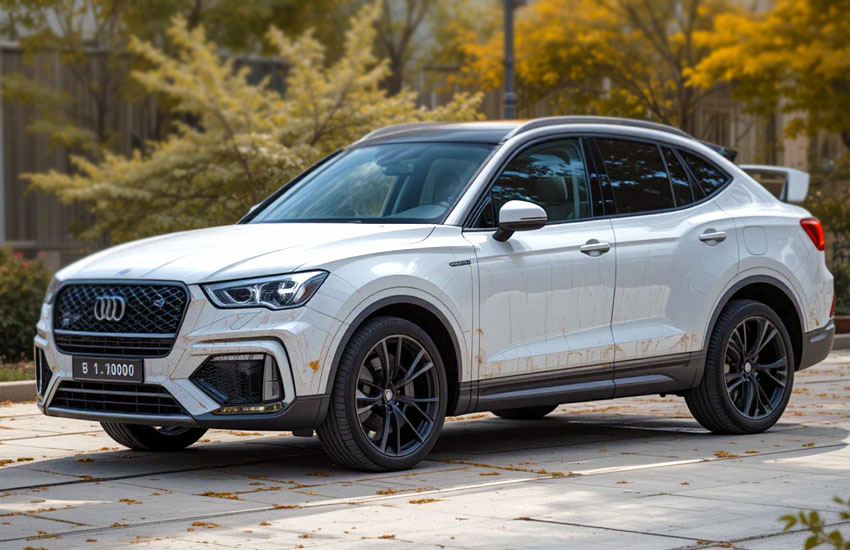
Frequently Asked Questions
Is it normal for a car to not start even with a new battery?
A new battery can sometimes be defective, or the issue might lie elsewhere, like the starter or alternator.
Can a bad alternator cause a car not to start?
Yes, if the alternator is not charging the battery, the car might not start, even though the battery is fine.
Do I need to replace the fuel pump if my car won't start?
Not always, but if the fuel pump isn't working properly, it could prevent the car from starting.
Is it safe to drive my car if it cranks but doesn't start?
If your car cranks but doesn't start, it's better not to drive it until the issue is fixed, as it could cause further damage.
Can a clogged fuel filter cause my car to not start?
Yes, a clogged fuel filter can prevent fuel from reaching the engine, causing starting problems.
Do I need a new ignition switch if my car doesn't start?
If the ignition switch is the problem, it may need to be replaced to get the car starting again.
Can a faulty security system prevent my car from starting?
Yes, a malfunctioning security system, like a broken immobilizer, can stop the car from starting.
Is it expensive to replace a starter motor?
Replacing a starter motor can be costly, but it's often necessary to get your car running properly again.







